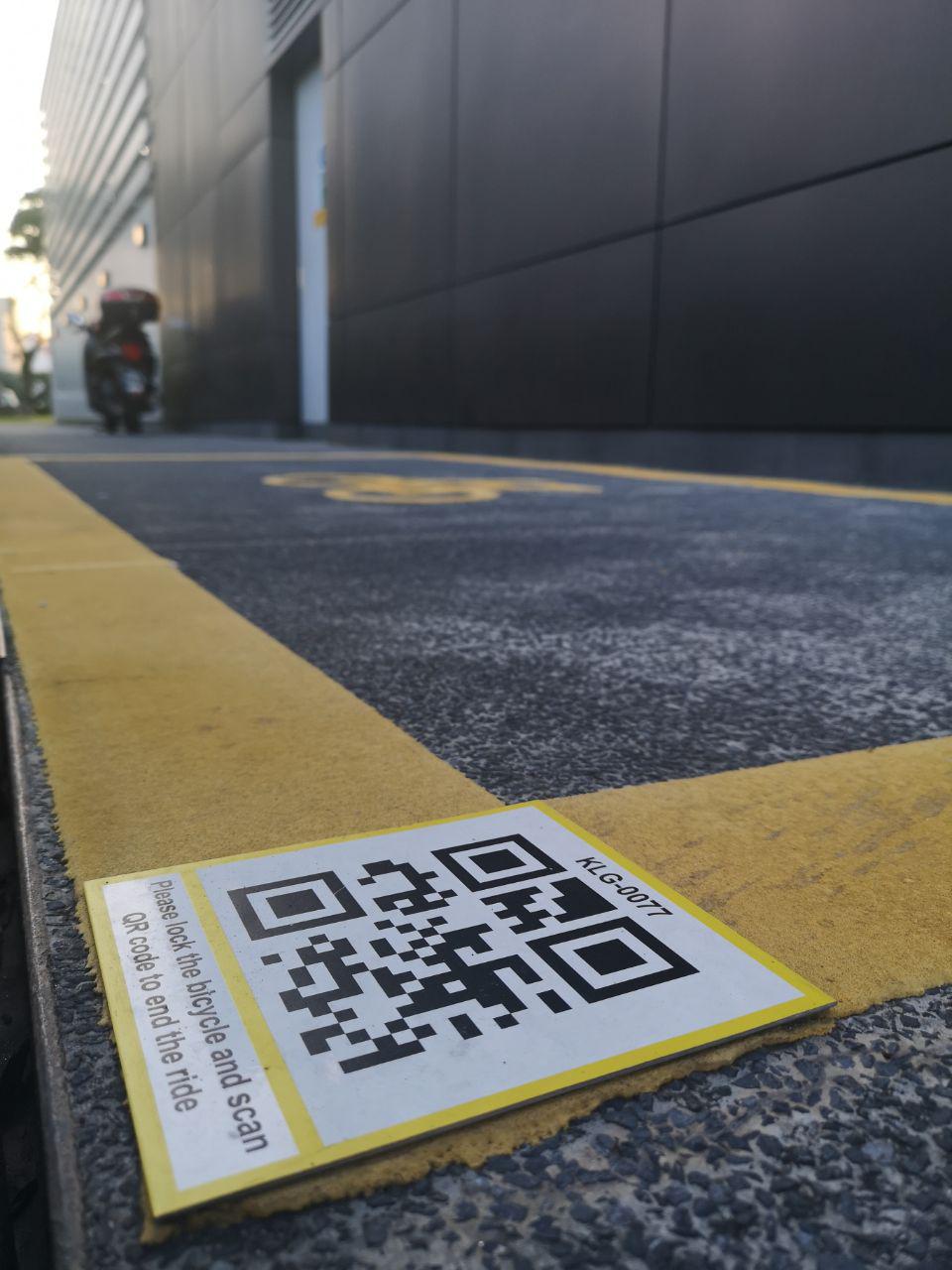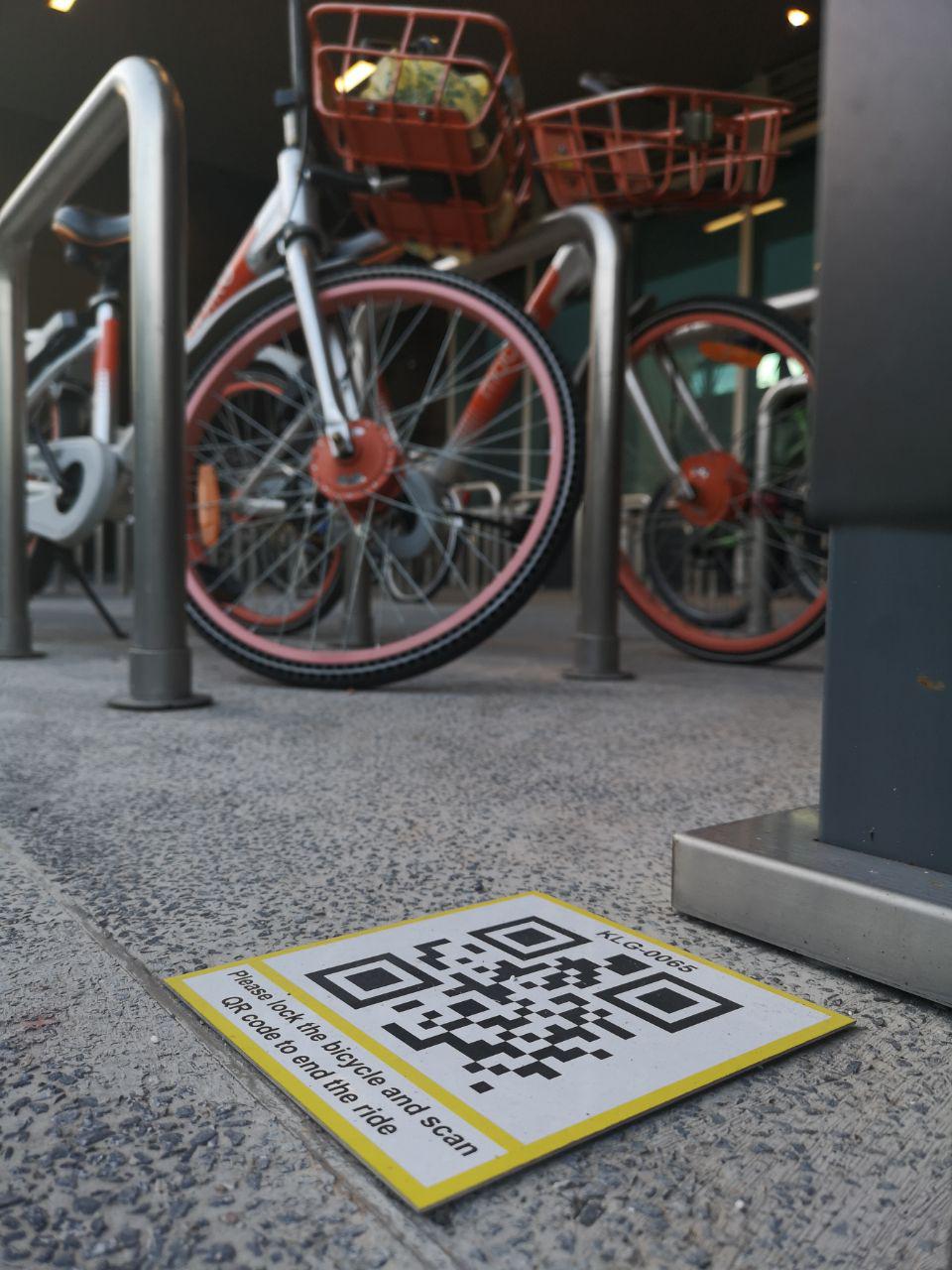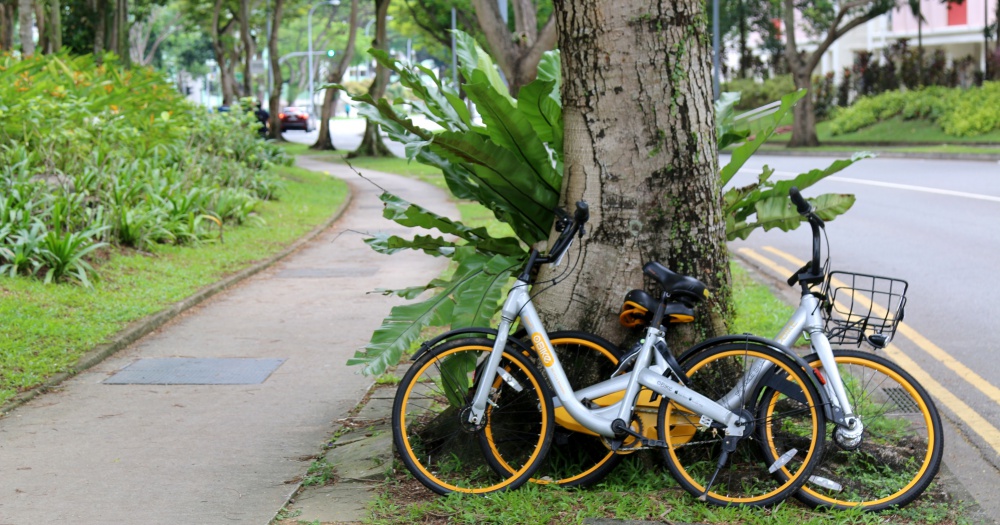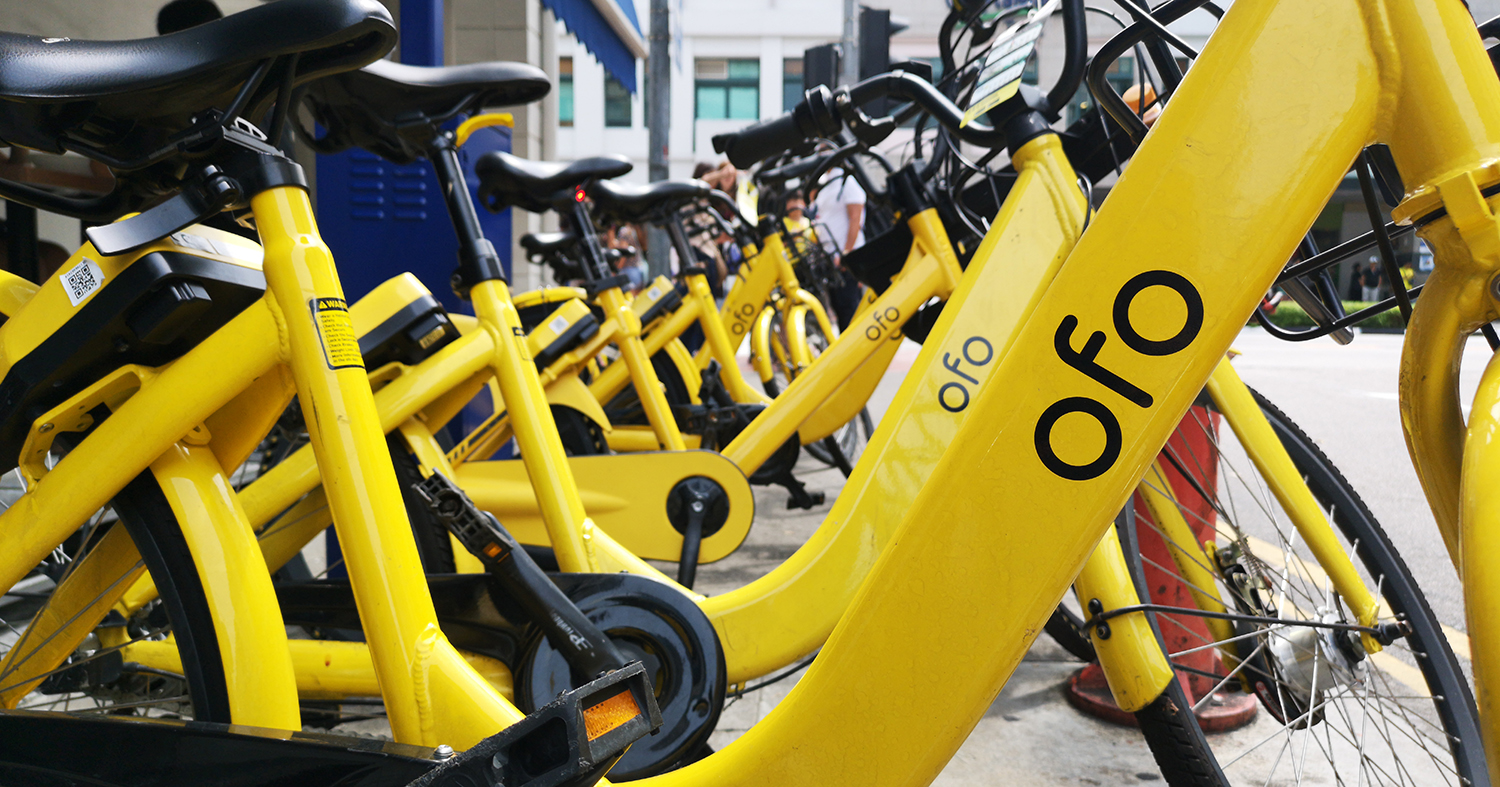From Jan. 14, 2019, you will need to scan a Quick Response (QR) code to park shared bicycles.
Currently, users simply have to lock the bike after use and the app will register that the trip has ended. Come Jan. 14, the app will prompt users to scan an external QR code as an additional step.
This is to prove that the bike has been parked in a designated parking space.
QR code parking
The QR codes can be found either on the ground or on a wall near the parking space (yellow boxes or bicycle racks). Here are a couple of examples:
 QR code on a yellow box for shared-bicycle parking. Photo by Joshua Lee.
QR code on a yellow box for shared-bicycle parking. Photo by Joshua Lee.
 A QR code at a bicycle rack. Image by Joshua Lee.
A QR code at a bicycle rack. Image by Joshua Lee.
If the QR code is damaged, you will need to submit a photo of the damaged code in your bike-share app. If the code is missing, submit a photo of the bicycle parked in the yellow box or at the bicycle rack in your bike-share app.
S$5 fee for errant parking, ban for recalcitrant users
Users will have to pay a S$5 fee for every instance where they do not park at a designated space. Three instances of non-compliance will result in a one-month ban from all bike-share services.
Every additional three instances of errant parking will subject the user to an increasing ban period. So the user will face a three-month ban after the sixth instance of errant parking, a six-month ban after nine instances, and a one-year ban after the user has chalked up 12 instances of errant parking (for which he/she would have also paid S$60 in fines).
Curbing indiscriminate parking
The new measures were mentioned in the Parking Spaces (Amendment) Bill which was read in Parliament in March 2018.
The Land Transport Authority (LTA) also implemented a new licensing regime in September 2018 to regulate bike-sharing players. These players expanded their fleets too quickly which led to an over-supply of bicycles. At one point, there were about 100,000 dockless bicycles in Singapore, with only half being used at any one time.
Aside from that, there were no fixed parking spaces for them, which meant that users parked them indiscriminately anywhere and everywhere.
 Bicycles left along the roadside. Image by Joshua Lee.
Bicycles left along the roadside. Image by Joshua Lee.
The licensing regime, which enforced a number of conditions on its licensees, has forced out at least one bike-sharing company.
Prior to its implementation, oBike stop its operations in Singapore, citing "difficulties foreseen to be experienced to fulfil the new requirements and guidelines" by LTA.
 ofo bicycles in Singapore. Image by Joshua Lee.
ofo bicycles in Singapore. Image by Joshua Lee.
More recently, ofo reduced its maximum fleet size due to difficulties in meeting the licensing financial obligations.
ofo's financial woes have exacerbated last month, leading to worries that the company might be pulling its operations out of Singapore. It's chief executive Dai Wei said in November 2018 that he is considering disbanding the company.
With these new measures kicking in on January 14, it remains to be seen if the bike-sharing market will be shrinking further.
Top images by Joshua Lee.
If you like what you read, follow us on Facebook, Instagram, Twitter and Telegram to get the latest updates.

